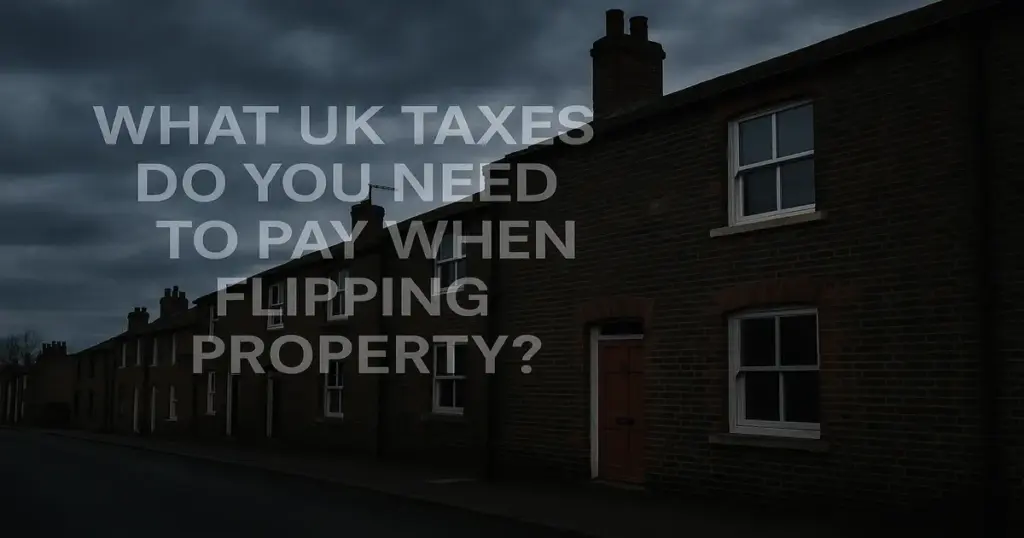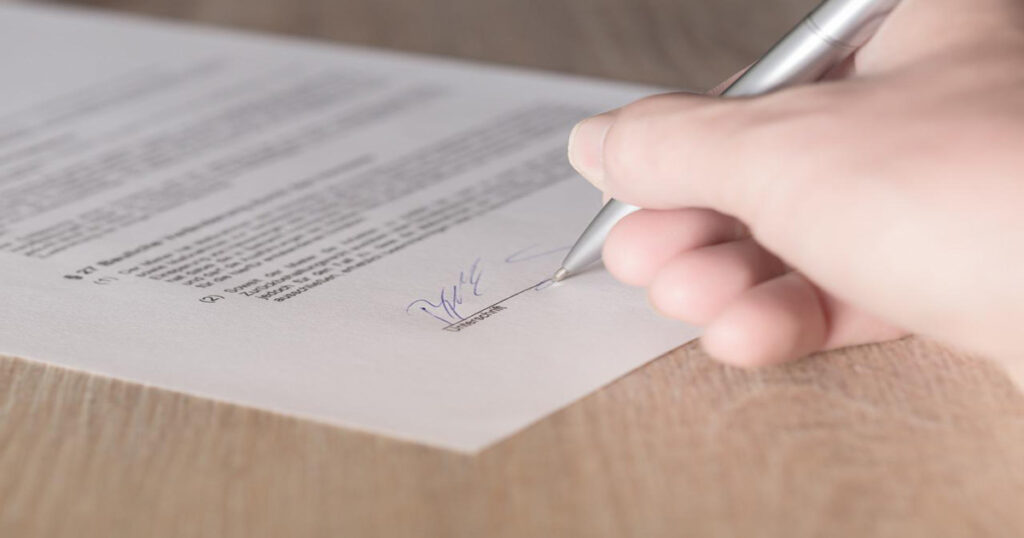What UK Taxes Do You Need to Pay When Flipping Property?
Flipping property — buying, renovating, and selling a property for profit — has become an increasingly popular investment strategy in the UK. With the allure of quick profits, many individuals and companies are diving into property flipping without fully understanding the tax implications.
While the potential gains can be significant, the UK tax system is complex, and failure to comply can result in penalties or unexpected tax bills. Whether you’re a first-time flipper or a seasoned investor, it’s crucial to understand the full spectrum of tax liabilities that come into play when flipping property in the UK.
This article breaks down the central UK taxes associated with property flipping, how they apply, how much you might pay, and strategies for remaining compliant while maximising your returns.
Income Tax vs Capital Gains Tax: Which One Applies?
One of the most common areas of confusion is whether profits from property flipping are subject to Capital Gains Tax (CGT) or Income Tax. The distinction largely depends on your intention and pattern of behaviour.
When Income Tax Applies
If you flip your properties as a business or trade—for example, buying, refurbishing, and selling multiple properties within a short timeframe—HMRC will likely treat this as trading rather than investing. In such cases, Income Tax applies.
You will be taxed on the entire profit as part of your income. Depending on your tax band, this could be:
20% (Basic Rate)
40% (Higher Rate)
45% (Additional Rate)
National Insurance Contributions (NICs) may also be due if you trade individually or through a partnership.
When Capital Gains Tax Applies
If you are flipping infrequently or treating property as a long-term investment, you might fall under the Capital Gains Tax regime. CGT is generally more favourable, especially for higher earners.
As of the 2024/25 tax year, the CGT rates are:
18% for basic rate taxpayers
28% for higher/additional rate taxpayers (on residential property)
However, you can benefit from the Annual Exempt Amount, which is £3,000 for individuals (as of 2024/25), meaning the first £3,000 of gains is tax-free.
Note: HMRC assesses your intention and pattern. If you buy, renovate, and sell within a year or so, it’s unlikely to be seen as a passive investment.
Stamp Duty Land Tax (SDLT)
When purchasing a property in the UK, you are usually required to pay Stamp Duty Land Tax (SDLT) in England and Northern Ireland, Land and Buildings Transaction Tax (LBTT) in Scotland, or Land Transaction Tax (LTT) in Wales.
Additional 3% Surcharge
If you own another property (e.g., your primary residence), you will likely be charged the 3% SDLT surcharge on top of the standard rates when buying residential property.
For property flipping, most investors do not plan to live in the property, so the surcharge typically applies.
Non-Resident Surcharge
An additional 2% SDLT surcharge may apply to the existing rates if you are a non-UK resident.
SDLT must be paid within 14 days of completion (as of May 2025).
Value Added Tax (VAT)
Most residential property transactions are exempt from VAT, but exceptions exist, especially in the flipping business.
When VAT Applies
If you convert your commercial property to residential, the work may be zero-rated, meaning you can reclaim VAT on costs.
If you’re flying to your residence or doing major renovations, some works may be VAT-reclaimable under the 5% reduced rate.
You must usually be VAT-registered and trading as a business to reclaim VAT. This involves careful planning and record-keeping.
Tip: Always seek professional VAT advice if your flip involves conversions, commercial property, or large-scale renovations.
Corporation Tax (if operating through a Limited Company)
Many property flippers operate through a limited company for tax efficiency and liability protection.
If you do so, your profits are subject to Corporation Tax, not Income Tax.
Current Corporation Tax Rates
As of the 2024/25 tax year:
19% for companies with earnings under £50,000
25% foearningssts over £250,000
A sliding scale for profits between these thresholds (known as the “marginal rate”) Didnd draw the company will also be subject to Dividend Tax, which can be:
8.75% introductory)
33.75% (higher rate)
39.35% (additional rate)
You’ll have a troublesome tax impact—once at the corporate level and again when drawing profits personally.
National Insurance Contributions (NICs)
If you flip property as an individual (not via a company) and HMRC treats you as a trader, you may have to pay Class 2 and Class 4 National Insurance Contributions.
Class 2 NICs: £3.45 per week (2024/25)
Class 4 NICs: 9% on profits between £12,570 and £50,270, and 2% on earnings above that
If flipping is not deemed a trade (e.g., a one-off project),
If you own a property, you may be liable to pay Council Tax, especially if the property is habitable.
If you flip multiple properties or operate on a commercial scale, local authorities might assess your properties for Business Rates, especially if: Yo u’re
We’re moving out of your room to workers or lodgers during renovation
The property is advertised as serviced accommodation or Airbnb
Some reliefs (like Small Business Rate Relief) may apply, but eligibility varies.
Tax on Rental Income (if you rent before flipping)
If you rent out the property before selling — even temporarily — any rental income must be reported to HMRC and is subject to Income Tax.
You can deduct allowable expenses like:
Mortgage interest (subject to restrictions)
Repairs and maintenance
Letting agent fees
Insurance
Inheritance Tax (IHT)
While not directly related to flipping, property investments can have Inheritance Tax implications.
If you die while owning property, its value is included in your estate. If your estate exceeds the IHT threshold (£325,000), tax of 40% may apply on the excess — unless assets are passed to a spouse or civil partner.
Record-Keeping and Reporting Requirements
Accurate records are essential for all taxes. You’lll nYou’lllou’llltoYou’lll
and sale dates
Legal fees
Stamp duty
Renovation costs
VAT on services (if reclaimable)
Income and expenses
Receipts, invoices, and contracts
Property flippers must report:
Income Tax Self-Assessment (if trading as an individual)
Annual Accounts and Corporation Tax returns (if operating as a company)
CGT on UK Property Return — due within 60 days of completion for CGT-liable disposals
Strategies for Tax Efficiency. While it’s a pay-what-you-owe, there are legal strategies to minimise your tax liability:
Use a Limited Company for tax deferral and reinvestment
Claim all allowable expenses (e.g., legal fees, building costs, council tax during voids)
Invest with a spouse or partner to use both tax allowances
Plan exit timing to spread profits across tax years
Consider VAT planning if your flip involves a qualifying renovation
Always consult a tax advisor for tailored advice.
Frequently Asked Questions (FAQs)
Can I flip one property and still be taxed as a business?
Yes, you intended to buy and sell for profit from the start. Even a single flip can be considered trading. HMRC looks at your motive, not just frequency.
What if I lived on the property before selling?
If you genuinely live in the property as your primary residence, you may be eligible for Private Residence Relief, which can exempt you from CGT. However, HMRC will investigate whether this was a genuine home or a tax avoidance scheme.
Is it better to flip through a company or personally?
It depends on your situation:
Personal flipping offers CGT rates but limits tax planning.
Limited company flipping provides tax deferral and expense flexibility, but involves administrative duties and possible double taxation on dividends.
Consult a tax advisor to model both.
Can I avoid the 3% SDLT surcharge?
The surcharge generally applies unless you replace your primary residence or own no other property. Even if the property is uninhabitable, HMRC may still charge the surcharge.
Can I flip a property with no VAT issues?
Yes, VAT will not apply to most straightforward residential FL IPSSs. VAT is mainly irrelevant when dealing with commercial property, major renovations, or new builds.
Do I pay tax if I break even or make a loss?
No tax is due on flips that make no profit. However, losses may be offset against other income (for traders) or carried forward for future CGT (for investors).
Do I need an accountant?
While not legally required, an accountant can help:
Determine your tax status
File returns correctly
Advise on VAT and allowable expenses
Avoid penalties or overpaying tax
Final Thoughts
Flipping property can be rewarding, but the UK tax landscape is full of rules that can catch you out. Understanding whether you’re a you’re or an investor is central to knowing which taxes apply. From Income Tax and Capital Gains Tax to SDLT and VAT, many tax obligations could affect your bottom line.
Planning, maintaining proper records, and seeking professional advice are key to making your flipping journey profitable and compliant.
General Tax Guidance
HMRC: Income Tax
https://www.gov.uk/income-taxHMRC: Capital Gains Tax
https://www.gov.uk/capital-gains-taxHMRC: Corporation Tax
https://www.gov.uk/corporation-taxSelf Assessment Tax Returns
https://www.gov.uk/self-assessment-tax-returnsRead our top Blogs:
Sell My Property Fast For Cash In Wandsworth
What to Do If Your House Won’t Sell: Solutions That Work
How to Sell a House Fast: Proven Tips to Get a Quick Sale Without Estate Agents
Call +447702210159 our friendly team for a same-day offer





